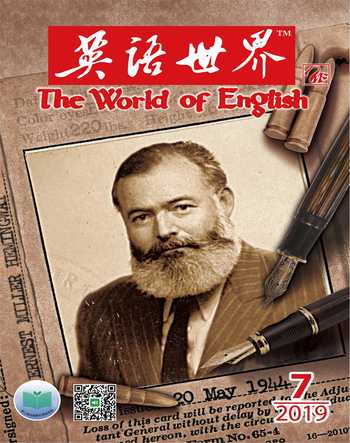翻译擂台(第34期)
2019-09-10林巍
林巍
【原文】
Parties and Presidency (II)
[1] That being said, the reverse case is not necessarily true. When the incumbent party is doing alright, the country will still hear out the other side and can be convinced that they can do better. [2] The willingness to change who holds the reins when the incumbent party has done well seems dependent on how recently and severely the challenger party screwed up the last time they had the power. [3] If it’s seen as particularly bad and still too recent you might get a 20 year rule like the Democrats had after Hoover, or a 12 year rule like Republicans had after Carter. [4] When times are good and the challenger party’s last attempt wasn’t too bad, you get a closer election that is more dependent on the candidates than the historical trend (e.g. Nixon vs. Kennedy, Bush vs. Gore).
【点评】
随着美国“通俄门”调查的落幕,其两党制和总统制的特征又前所未有地突显出来,引起世人关注。
关于题目,上次已作解释,但此次参赛者对于Presidency还有许多不恰当的译法,如“总统选举”“总统的就职”“支配权”“执政权”等。该词的英文原义为:The presidency of a country or organization is the position of being the president or the period of time during which someone is president.显然是指其职务、任期或制度,如:①Only native-born citizens are eligible for the U.S. Presidency.(只有本国出生的公民才有资格担任美国总统的职务。)②He was a White House official during the Bush presidency.(他是布什任總统时的白宫官员。)③American Presidency characterizes its political system.(美国总统制是美国政治制度的一大特征。)其近义词为presidentship。有的译成“政党及其任期”,是把Party和Presidency混同了。
[1]中,That being said是针对Parties and Presidency (I)中的最后一句而言的,即:The country doesn’t like one party in power too long and when that party isn’t cutting it, they run to the other party.(美国民众不喜欢某个政党长期执政,若该党政绩不佳,选民便会转而投票给另一政党。)一般可译为“这么说来”“那就是说”,如:①So, that being said, you just have a marvelous day, right?(这么说来,你今天过得蛮不错,是吧?)②That being said, here are a couple of my favorites from each of the factions.(那就是说,每个派系里都有我喜欢的。)the incumbent party不是“在职党”,而是“执政党”。对于the country,许多人译成“国家”“该国”“国家政府”(仍会倾听其他政党的意见)等,显然不妥:“国家”是谁?怎么会hear out the other side?实际是“全国选民”;同时,“国家”也不等于“政府”,更不等于“政党”,但由于不同的政治环境,许多人对此往往不加区分;此外,还混淆了“被选举者”(政府、执政党)与“选举者”(全国选民)的关系。故此,这部分不妨译为:话虽如此,但相反的情况却未必尽然。当执政党业绩甚佳时,全国选民仍会认真听取在野党的声音,并相信他们会做得更好。
[2]中,许多人将recently译成“最近的”,如“他们在最近一次执政时搞砸了”“在野党上次表现得糟糕透顶而且这还发生在不久之前”“事情特别糟糕,时间离得又近”等;其实,应将how recently加以理解,即“有多远”“远近程度”“距其下台时间的远近”。而severely the challenger party screwed up the last time they had the power为“上次掌权时的糟糕程度”,在翻译时可将二者的次序作适当调整。故此句不妨译为:此时,更换执政党的意愿,似乎取决于在野党上次掌权时的糟糕程度和距其下台时间的远近。
[3]中,同样,too recent不宜译成“最近的”(表现过于糟糕),而是“距其下台时间太近”。对于相关内容,许多参赛者增加了不同的译文成分,甚至注释,固然有助于译文的准确性和详尽性,但更应注重其恰当性。总的讲,“增译”的目的是挖掘原文本身具有的含义,使译文更加易懂、完整、通顺,做到“增词不增意”,如:①These early cars were slow, clumsy, and inefficient.(这些早期生产的汽车速度缓慢,运行笨拙,而且效率很低。)②They wanted a generation of Americans conditioned to loyalty and duty.(他们都想把一代美国人培养得忠于祖国、恪尽职责。)③Their conditions are of shabby house, ragged cloths and junk food.(他们住的是破旧房屋,穿的是褴褛衣衫,吃的是垃圾食品。)就本文来讲,有的译成“如果错误尤为严重且刚过去不久,那结果可能会像共和党总统胡佛(美国第31任总统,任期1929—1933年)犯错之后,民主党连续执政20年;或者像民主党总统卡特(美国第39任总统,任期1977—1981年)犯错之后,共和党连续执政12年”,其中的两个“犯错之后”是否有必要?同时,与其注明总统的任期,不如注明总统的政党。此外,20 year rule和a 12 year rule指的是“不同政党的”,添加上去更易于读者对原文的理解。故此,该句不妨译为:若选民认为该在野党特别糟糕且距下台时间太近,那么可能会出现当前执政党连续执政20年(如共和党总统胡佛下台后民主党执政)或12年(如民主党总统卡特下台后共和党执政)的情况。
[4]中,When times are good不是“时代是有利的”,而是“当时机成熟”“若正逢其时”,如:It’s easy to have a partially liberalized market economy when times are good.(在时机成熟时,局部实施自由市场经济体制甚为容易。)challenger party似乎是“挑战者党”,但实际情况是,在两党、多党制国家,挑战执政党的一方便是在野党。同时,许多人没有把get a closer election(选情会更为胶着)之意翻译出来。“more dependent on… than…”指“更多取决于……而不是……”。此处括号中的内容倒是可以不拘泥于原文,融入译文中,同时加上“竞选”二字,以更自然、通顺:若正逢其时,且该在野党上次执政业绩尚可,那么选情会更为胶着,选举便更多取决于候选人而不是以往的大选趋势了,如尼克松与肯尼迪、布什与戈尔之间的竞选。
由此可见,美国政治制度的稳定取决于其政党(多党制)、政府(总统为政府最高行政首脑)和选民之间的良性互动与制约。分清这些概念与元素,不但是理解美国乃至西方社会的基础,也是准确进行相关翻译的前提。
【优胜者】
刘怡宏(北京) 冯军庆(陕西) 祝惠娇(广东)
